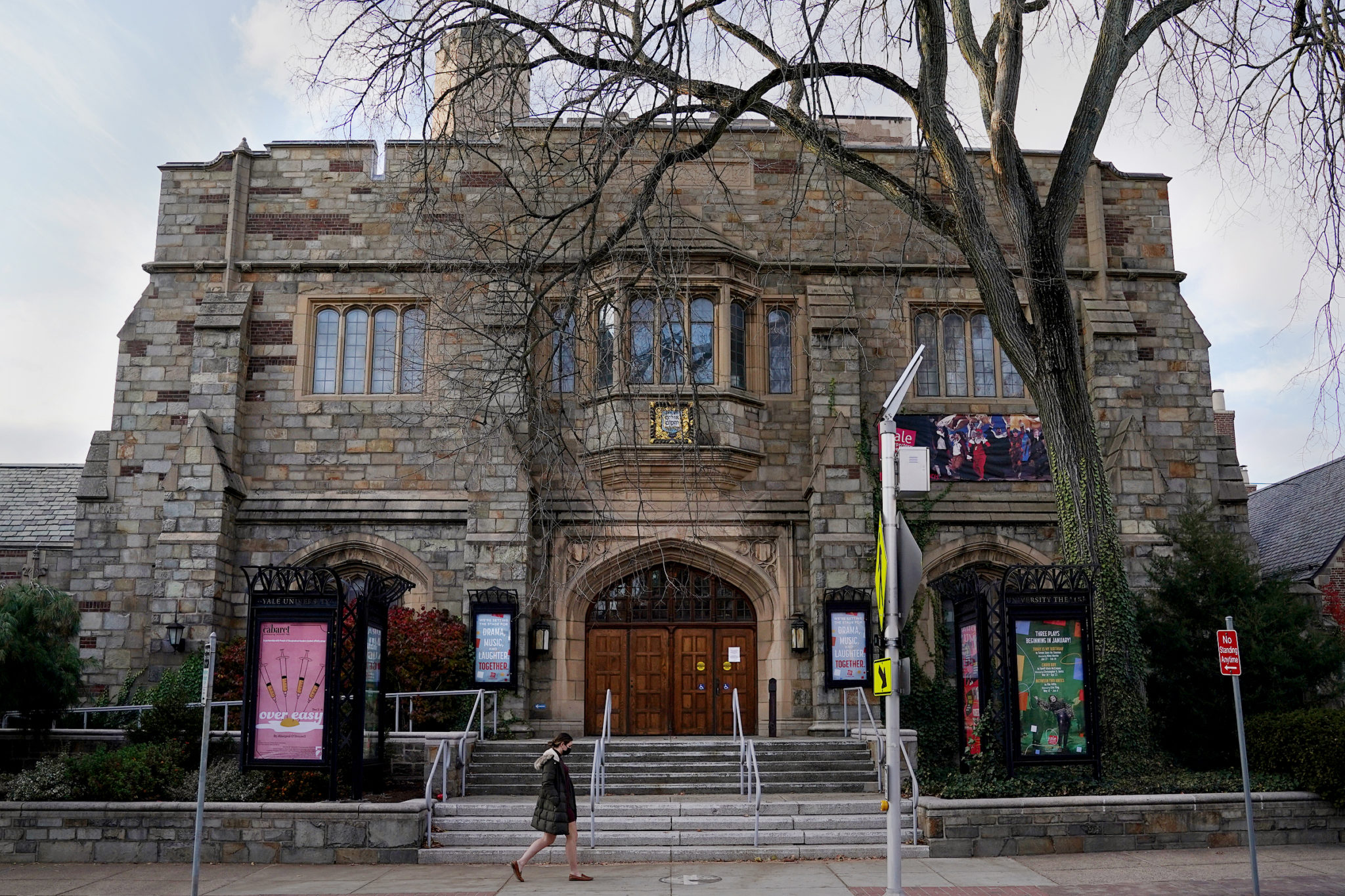Dramat production to feature entirely Black cast
Tori Sampson’s 2019 play, “If Pretty Hurts Ugly Must Be a Muhfucka,”, will explore the meaning of beauty through the lens of Black womanhood at the Spring 2023 Experimental show.

Tim Tai, Photography Editor
A show selected by the Yale Dramatic Association will feature an entirely Black cast for the first time in four years.
“If Pretty Hurts Ugly Must Be a Muhfucka,” a play by Tori Sampson, will be produced for the Spring 2023 Experimental production. Set to run from Feb. 16 to 18, the production combines West African folklore, American high school comedy and magical realism to tackle the meaning of beauty through the eyes of four Black teenage girls.
“Tori Sampson’s script in itself is a gift that provides opportunities to let our imaginations run wild,” Megan Ruoro ’24, who is co-directing the production, wrote in an email to the News. “Our production will not be another depressing depiction of the struggle of the black women, but instead a celebration of ourselves and each other in all of our glory.”
The Dramat puts on a total of six shows each year, with two of them — labeled Experimental productions — entirely staffed by students.
Ruoro is co-directing the show alongside Simisola Fagbemi ’24. Chidima Anekwe ’24 is the show’s producer and Maya Fonkeu ’25 is the stage manager. The four of them form the core production team.
The production will also feature live music composed by Vyann Eteme ’25 and movement choreographed by Katia George ’25, Ruoro said.
Fagbemi described her vision for the show simply as “something beautiful,” evoking drums, flowing water and lush greenery.
“It’s not that the show doesn’t deal with heavy subject matter, but what I find so freeing about the script is that it is set in a Black world,” Fagbemi added. “The narratives of racial hardship that so often dominate Black stories are not our subject of interest. We’re examining beauty standards and how they impact Black women, but for once it’s through an Afrocentric lens, which is in itself freeing. That doesn’t make these standards better, just interesting in a new way.”
The production choice was announced in a Sept. 27 email from the Dramat. An information session about the show is scheduled for Oct. 2, with cast auditions set for Oct. 5-9.
Ruoro noted that while the cast is composed entirely of Black performers, any student is welcome to join the production staff.
For the core production team, a central goal is increasing the diversity of and access to theater programs at Yale — forming, as Fagbemi called it, “a safe entry-point.”
“I truly want this show to be an open and accessible gateway to theater at Yale for Black creatives who otherwise wouldn’t have felt they had a real means of getting involved,” Anekwe wrote. “I want this show to be the first for much of our cast and production team, but definitely not the last.”
Sam Bezilla ’23, president of the Dramat, expressed the organization’s excitement about this year’s Spring Ex in an email to the News.
“More than anything, we hope that the team and the cast they choose have a fulfilling (and fun) experience making art together,” Bezilla wrote. “We also hope to bring the power of Sampson’s play to as large an audience as possible. The Dramat exists to support artists making art; we couldn’t be more thrilled to support this group of talented theater artists as they explore themes in the Black experience with broad resonance.”
Yale’s production of “If Pretty Hurts” also has deep personal meaning for the core team.
Fagbemi first met Ruoro during their first year at Yale, as they were both part of the same family in the Cultural Connections pre-orientation program. They both went on to work with Fonkeu and Anekwe in last semester’s production of “Once On This Island.”
“I’ve been wanting to write and stage my own show here since I started my Yale application, and this show has so many of the elements I envision in my dream show — live music, magical realism, a strong grounding in West African culture (I’m Nigerian),” Fagbemi wrote.
Anekwe expressed goals for what this production will do on a broader scale to the Dramat’s culture and operations.
She called increased casting of Black actors and actors of color in “traditionally white or otherwise white-coded roles” a start, but also described hopes for greater emphasis on non-normative productions.
“I want theatermakers at Yale to keep finding these cool new experimental contemporary plays to put up that already have diverse characters and narratives written into them,” Anekwe wrote. “Shoutout to the original student plays being written every semester that really do have this down.”
Sampson’s play was first performed in 2019.







